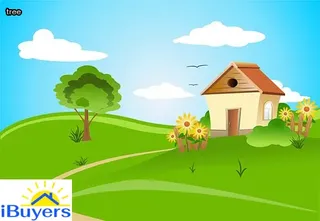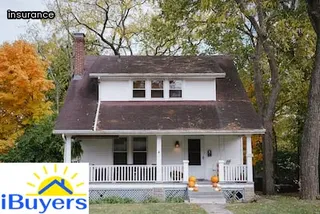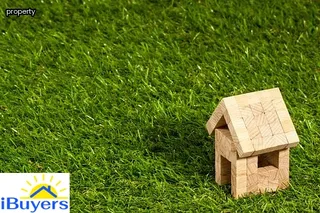When a neighbor's tree falls on your property, it can be difficult to determine who is responsible for the damages. In most cases, the homeowner is responsible for any damage caused by trees that are on their own property; however, if a tree from an adjacent property causes damages, then the responsibility falls to the neighboring property owner.
If a neighbor's tree falls on your house or other structures, such as a car or fence, you may be able to seek compensation from the neighbor’s homeowner insurance policy. Before filing an insurance claim against your neighbor's homeowners insurance policy, contact your own insurance company to get an assessment of how much coverage you will receive.
This can help you determine whether or not it would be beneficial to file a claim with your neighbor's insurance policy. Additionally, it is important to contact a professional arborist and have them inspect both properties and assess any potential danger posed by the fallen tree before proceeding with legal action.
Ultimately, determining responsibility surrounding when a tree falls on your property depends largely on local laws and regulations. It is essential to consult with experienced legal counsel in order to ensure that you are making the best decision for yourself and your family in these situations.

When a neighbor's tree falls on your house, it can lead to serious property damage and liability questions. The first step is to assess the damage and contact your insurance provider.
Your insurer will likely investigate whether the tree fell due to a covered peril such as wind, snow, or ice. If so, they may cover the repairs but could also seek reimbursement from the neighbor who owned the tree.
If not, the cost of repairs could fall on you or you may be able to pursue a legal claim against your neighbor. To determine liability in these cases, it is important to understand state and local laws regarding tree ownership and maintenance.
You should also consider factors such as how recently the tree was trimmed and who was responsible for its care. It is also important to document any evidence of damage or negligence that might be relevant to your claim.
Finally, if you do believe you have a valid claim against your neighbor, consult with an experienced attorney who can help you navigate complex legal issues related to property damage claims involving trees.
When a tree from your neighbor's property falls on your house, it is important to understand who owns the tree. Depending on the location of the tree, it is either owned by you or your neighbor.
If the tree is located entirely on your property, then it is legally yours and you are responsible for any damage caused. However, if the tree extends beyond your property line and into your neighbor's yard, then they will likely be responsible for any damages incurred.
It is important to note that even if the trunk of the tree is located inside your neighbor's yard, its roots may still extend into yours and thus both parties could share responsibility for any damages. In order to determine who owns the affected tree, it will be necessary to review boundary lines in order to confirm which side of the line it was located on before it fell.
Additionally, local ordinances should be consulted as some may specify who holds responsibility for fallen trees depending on their location.

When a neighbor's tree falls on your house, understanding the costs of damages and compensation you may be eligible for is critical. Knowing what to do after such an event can be overwhelming, but it is important to remember that insurance companies may cover costs associated with damaged property and even medical bills if there are any injuries.
Additionally, in some cases the responsible party will be liable for those damages. It is essential to document all expenses related to the incident so there will be sufficient evidence when filing a claim or lawsuit.
Furthermore, it is important to know the laws and regulations surrounding this type of situation as they vary from state to state. Consulting legal advice can help with understanding these complexities and ensure that you are aware of all of your options when dealing with a neighbor's fallen tree.
When a neighbor's tree falls on your house, it can be a difficult situation to navigate. Finding solutions to neighborly disputes in these situations is key to resolving the issue quickly and efficiently.
It is important for both parties to remain civil and discuss the situation calmly. The first step is for both parties to assess the damage and determine who should bear responsibility for the incident.
Depending on local laws, homeowners may not be liable for damages done by their neighbors' trees unless they had knowledge of an unsafe condition beforehand. If a homeowner does have legal liability, they should consider filing an insurance claim with their own home insurance provider or with their neighbor's insurer if applicable.
Homeowners should also contact the appropriate authorities such as the police or fire department in order to document the incident and ensure any safety hazards are taken care of immediately. Homeowners may also need to contact a lawyer if they are unsure of their rights or if a dispute arises between them and their neighbor regarding shared costs or responsibility for damages caused by the fallen tree.
Whatever route you choose, finding solutions to neighborly disputes can help you resolve issues quickly and peacefully.

When it comes to preventing or protecting your home from a neighbor's fallen tree, there are several steps you can take. Firstly, assess the potential danger of any overhanging tree branches and take action to remove them if necessary.
It is also important to be aware of the trees on your neighbor's property that could potentially cause damage and discuss with them if they will consider preventive measures such as pruning or removing the tree altogether. Additionally, you should analyze the surrounding area for hazards like power lines or buildings that could be affected by a falling tree.
Finally, make sure your home insurance covers damage caused by a fallen tree from a neighbor's property. By taking these proactive steps, you can prevent or protect yourself from costly repair bills if your neighbor's tree falls on your house.
When a neighbor's tree falls on your house, the first step is to examine similar cases of negligence and liability to determine what your legal rights are. In order to make an informed decision, it is important to understand how courts have traditionally handled cases of this kind.
In general, if the tree was located on your neighbor's property, they may be held liable for any damage caused due to their carelessness in not maintaining or removing the tree. If it can be proven that the tree was structurally unsound or diseased, then the homeowner may be able to seek compensation from their insurance company.
Furthermore, if your neighbor had knowledge of the tree being a potential hazard but failed to take reasonable steps to remove it, you may also have a claim against them for negligence. It is always recommended that you consult with an experienced attorney who can review all aspects of your situation and advise you on any applicable laws or regulations that may apply in your case.

When a neighbor's tree falls on your house, it can be an overwhelming experience. Fortunately, analyzing the cost of removing the fallen tree doesn't have to add to the stress.
It is important to assess the situation and determine whether you, your neighbor, or an outside contractor will be responsible for removal of the tree and any damages that occurred. If you are hiring a contractor, make sure to get multiple quotes and verify their references.
When looking for a contractor to remove the tree, consider if they have experience in dealing with large trees or hazardous situations that may arise from cutting down branches. Additionally, investigate what kind of tools and equipment they will use; this will help give you an idea of how much it is going to cost.
Lastly, research local laws and regulations concerning fallen trees as some jurisdictions may require permits or other paperwork before performing any work on private property. Knowing all these factors can help provide peace of mind when preparing for tree removal and understanding the associated costs.
When a neighbor's tree falls on your house, it can be a stressful and overwhelming situation. Knowing what to do and who is responsible for the damage can help you navigate the process of resolving the issue.
First, assess the damage to your property and contact your insurance provider as soon as possible. Your insurer will review the policy to determine if coverage is available for this type of incident.
If so, they will advise you on how to proceed. You should also contact your neighbor and let them know what has happened; they may have insurance that could cover the cost of repairs.
In some cases, it may be necessary to hire an arborist or lawyer to ensure that all parties involved are held accountable for the damage. Additionally, check with local ordinances or homeowner’s associations in case there are restrictions regarding trees on private property that may affect how much responsibility your neighbor has for their tree falling onto your house.
Taking these steps can help make sure that you get the compensation you need for repairs quickly and without too much stress or difficulty.
A: In this scenario, you should contact your Insurance Carrier immediately to determine if you are covered by your Homeowner’s Insurance policy. If so, they will guide you through the process of filing a claim and being reimbursed for damages.
A: It depends on the circumstances. If your neighbors were negligent in maintaining the tree, such as not pruning it properly or ignoring signs of decay, then they may be held liable for any damages. However, it is best to consult with an attorney to get more information specific to your situation.
A: It depends on the specific terms of your landlord's insurance policy. Generally, most landlord insurance policies provide some level of liability coverage against third-party property damage, so it is likely that your landlord would be liable for any damages caused by a neighboring tree falling on your house.
A: Yes, your Fire Insurance policy should cover damages to your roof caused by a neighbor's tree falling due to a windstorm. However, you may need to pay the deductible before the coverage kicks in.
A: The homeowner whose property the tree was on is typically liable for any damage caused by the falling tree.